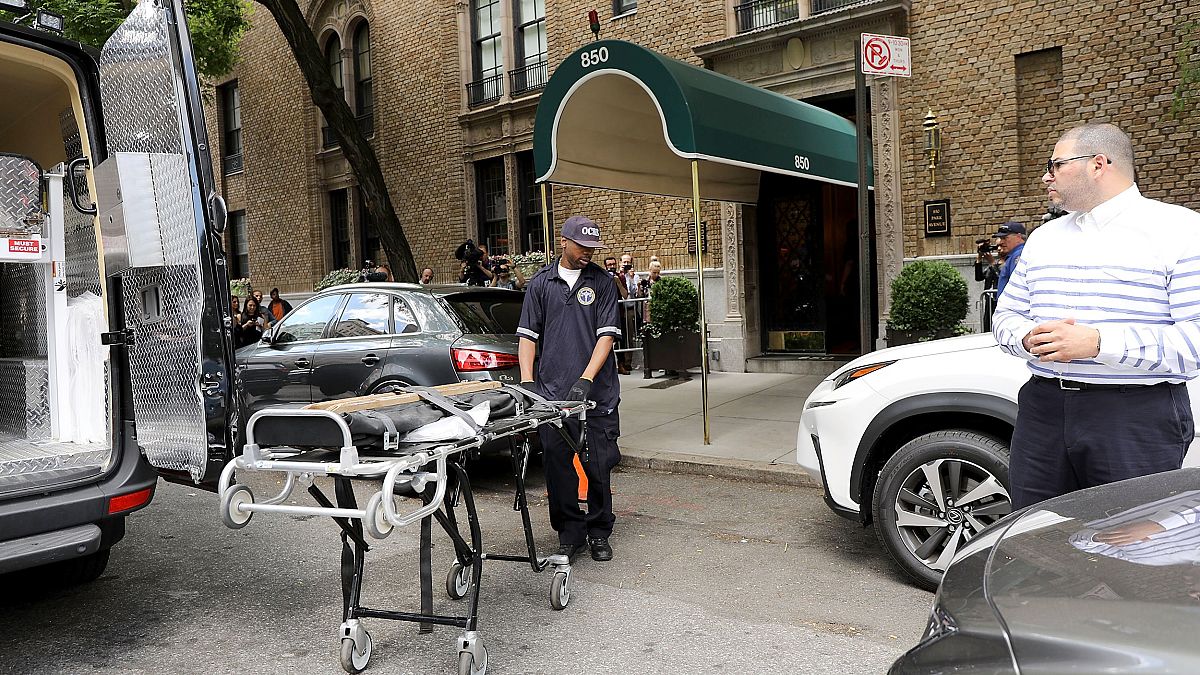Many mental health advocates use the term "died by suicide," because it removes culpability from the person who has lost their life.
With the tragic news of Kate Spade's death, reactions and commentary are pouring in on social media. People who never met her are grasping for answers as to why a fashion icon famed for her use of cheery colors and cute patterns could meet such a tragic end. Specifically they may be asking, "How could she do this?" It's a common question in the aftermath of a suicide that, though typically innocent in nature, is loaded with crucial misunderstandings about suicide and mental illness.
What exactly is the problem? Partly it's in the language. Asking "how someone could do this" puts responsibility on the victim, just as the phrase "they killed themselves" does in suggesting this was an action of their own free will. Depression and other mental illnesses are often leading risk factors for suicide. This is why mental health advocates usually employ the term "died by suicide," as it removes culpability from the person who has lost their life and allows a discussion about the disease or disorder from which they were suffering.
For the victim, suicide can seem not selfish, but selfless
As a person who has lived through suicidal ideations (as a symptom of both depression and anxiety), I can say that in my darkest moments when I contemplated death, my thoughts felt exceptionally lucid. Indeed, I felt I'd never seen the world, and my life so clearly. How then would it not have been my choice to carry out a suicide attempt? Because that wasn't me thinking: it was my disease thinking for me.
"In interviewing people who have [survived] suicide, what becomes apparent is that suicide in the moment that they attempt to enact it seems to them a very logical solution to their problems," says Dr. Anna Lembke, an associate professor of psychiatry and behavioral sciences (general psychiatry and psychology-adult) at Stanford University Medical Center. "Most often their problem is feeling profoundly unworthy, profoundly depressed and profoundly burdensome to others. What seems irrational from the outside in their mind is, in that moment, completely rational. And this thought of being a burden is a recurring theme that comes up again and again."
Because this feeling of being a burden (one I can well recall) is so strong, suicide can be viewed as "not a selfish act but almost a selfless act," by its victims, Dr. Lembke explains. "There's a gross underestimation of the psychological impact of what a suicide will be, even to loved ones, and an irrational sense that [one's death] will help people, even those they love the most. This thinking is deeply informed by being in an altered mental state caused usually by depression or depression and psychosis."
This is a critical distinction. The suicidal person isn't able to rationalize, and yet they feel like they are. They've made up their minds when their minds aren't actually able to make accurate perceptions and judgments.
You don't need to be depressed for long for this to occur, and not every depressed person develops suicidal thoughts
Both Dr. Lembke and Dr. Urszula Klich, a clinical health psychologist, speaker and author, tell NBC News BETTER that not everyone who suffers from depression (even at a debilitating level) will have suicidal thoughts. And not everyone who has suicidal thoughts will act on them. Why are some people more at risk than others?
"We don't know the answer," says Dr. Klich. "It's not like [with depression or another mental illness] you get a cut that may lead to an infection and there's a linear relationship where you know that if untreated, certain things will get worse and worse. A lot of my patients are chronic pain patients, which is a very high risk category, but no matter how depressed they are, they never have suicidal thoughts and never does their depression manifest to their being at risk for suicide."
Suicide is usually 'worked up to' — but still sometimes the victim doesn't even know they're suicidal
Just as a depressed person may never become suicidal, a person who has never been depressed can become suicidal — seemingly out of the blue. But there is almost always, Dr. Klich says, some form of "working up to the act." Sometimes a loved one can detect and intervene (successfully or not); sometimes they can't.
"If we take a look at the acquired ability or the so-called 'capability' a person has when completing suicide, we know they work up to the act. We see some things unfolding. They may have talked about it [however vaguely] with someone, and that person will later recall them saying something odd. But we also see suicidal patients doing some sort of rehearsals. They may not even be planning suicide, but they're playing around with the idea. Maybe, if they have a gun, they will take it out and load it and then unload it and put it away. Or, in the case of overdoses, they'll take out pills and count them. They picture it. Most people do give a clue we just don't interpret it as one — or assume they wouldn't actually [follow through].
The questions to ask: Get specific at the risk of feeling uncomfortable
To be clear, this doesn't mean that survivors of loved ones who died by suicide missed warning signs, because you can't miss signs if you don't know they're there; and as Dr. Klich points out, certain suicidal behaviors can only be aptly picked up on by trained professionals, especially in the case of those mentally rehearsing or visualizing — symptoms that can occur without the person's full awareness that this is indeed a kind of suicidal thinking. Additionally, because millions of Americans have depression and don't face suicidal thoughts, it can be hard if not impossible to tell who is at risk and who is not.
This is why, if you're concerned about a loved one being at risk, you have to ask questions of them — and you should get pretty specific. Dr. Klich finds that because suicide is so stigmatized (and also, just a really tough thing to talk about), people tend to skirt around the issue, or even unintentionally steer sufferers toward a reassuring answer.
"Very often people will say, 'you won't do anything, right?'" notes Dr. Klich. "Well, what does that even mean? I see this even in the medical field. Professionals will say to patients, 'you haven't thought about self-harm or suicide, right?' Who would answer positively in response to that? Not many people."
The better way to ask is to leave it open-ended and nonjudgmental. You may want to say, "Are you having suicidal thoughts or imaginings?"
Though more suitable for a diagnostic environment at the helm of a professional, Dr. Klich champions phrasing the question more as an invitation to talk. "I say, 'tell me about the times you've thought about ending your life.'" This framing provides an expectation that suicidal tendencies may be present, rather than the reverse approach as played out in "you aren't going to do anything, right?" which tends to shut down a conversation.
Another way to think about death by suicide
When we're grieving a suicide, we may be reeling with questions. Even now, as Dr. Klich notes, perfect strangers are trying to put together a puzzle of what happened to result in Kate Spade's death, of what they missed, of why we had no idea of her possible struggles (not that they are any of our business).
But if someone you did know has died by suicide and you are looking for a way to understand it, consider Dr. Lembke's moving analogy.
"We talk about death with cancer and heart disease but not death when associated with mental illness," says Dr. Lembke. "Some people do die from it. Suicide is like a massive heart attack of the brain."
If you're feeling triggered or at risk, please reach out to any mental health expert (you can often find it for cheap or even at no cost, as we covered here). And as always, the National Suicide Prevention Lifeline at 1-800-273-TALK is open 24/7, free and totally confidential.
MORE MENTAL HEALTH HELP
- Getting mental health treatment when you can't afford it
- How 'defusing my thoughts' helped me claw my way back from debilitating anxiety
- 7 steps for getting through a panic attack
- How to talk about mental health issues at work
Want more tips like these? NBC News BETTER is obsessed with finding easier, healthier and smarter ways to live. Sign up for our newsletter and follow us on Facebook, Twitterand Instagram.



